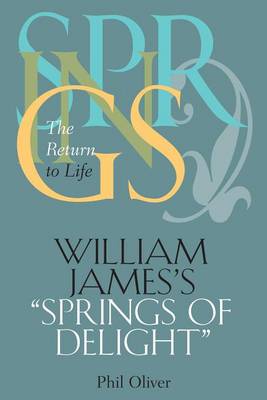Vanderbilt Library of American Philosophy
1 total work
This enterprising book, written in the spirit of William James, urges our appreciation of the intensely personal character of spiritual transcendence. Phil Oliver's work has important implications for specialists concerned with the Jamesian concept of ""pure experience,"" and it illuminates significant interdisciplinary ties among philosophy, literature, and other intellectual domains. Oliver argues Jamesian transcendence is relevant to current questions in cognitive science and the emerging ecological, computer, and cyber worlds. The philosophy of William James celebrates subjectivity, recognizing the integrity of individual experience as it is subjectively understood. But James also proposes that we acknowledge a category of experience neither subjective not objective but ""pure"" of such conceptual distinctions. While it might seem, then, that anything James says about transcendence would come out of his philosophy of pure experience, Oliver shows James as an advocate for a type of personal transcendence that owes at least as much to our subjective natural state as to pure experience. Jamesian transcendence, according to Oliver, seeks to reconcile individual growth with social responsibility. In this age of impersonal information, it invites us all to embrace our own enthusiasms, or ""delights,"" as the surest sources of personal happiness, mutual regard, and real depth in experience.
